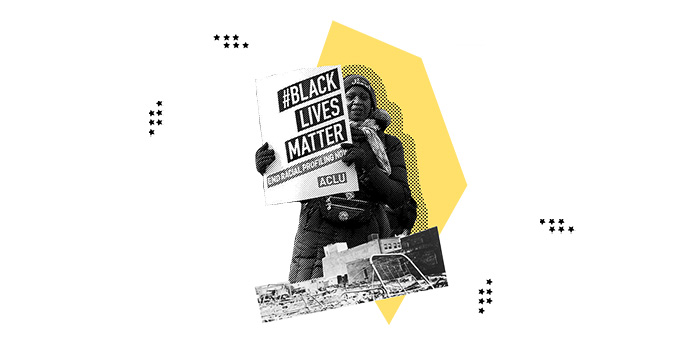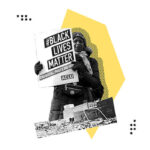Racial Justice
The ACLU Racial Justice Program aims to preserve and extend constitutionally guaranteed rights to people who have historically been denied their rights on the basis of race.

What you need to know
The Latest
Explore More
What We're Focused On
-

Accountability in Artificial Intelligence
The ACLU Racial Justice Program aims to preserve and extend constitutionally guaranteed rights to people who have historically been denied their rights on the basis of race
-

Affirmative Action
The ACLU works in courts, legislatures, and communities to defend and preserve the individual rights and liberties that the Constitution and the laws of the United States guarantee everyone in this country.
-

American Indian Rights
The ACLU works in courts, legislatures, and communities to defend and preserve the individual rights and liberties that the Constitution and the laws of the United States guarantee everyone in this country.
-

Race and Criminal Justice
The ACLU works in courts, legislatures, and communities to defend and preserve the individual rights and liberties that the Constitution and the laws of the United States guarantee everyone in this country.
-

Race and Economic Justice
The ACLU works in courts, legislatures, and communities to defend and preserve the individual rights and liberties that the Constitution and the laws of the United States guarantee everyone in this country.
-

Race and Inequality in Education
The ACLU works in courts, legislatures, and communities to defend and preserve the individual rights and liberties that the Constitution and the laws of the United States guarantee everyone in this country.
What's at Stake
The authors of the Declaration of Independence outlined a bold vision for America: a nation in which there would be equal justice for all. More than two hundred years later, it has yet to be achieved. Though generations of civil rights activism have led to important gains in legal, political, social, educational, and other spheres, the forced removal of indigenous peoples and the institution of slavery marked the beginnings of a system of racial injustice from which our country has yet to break free.
Deep-seated systemic racism and inequities that disadvantaged communities of color are still woven into the fabric of our institutions today— from education and housing to our criminal legal system. Systemic racism permeates the starkly segregated world of housing. In our public schools, students of color are too often confined to racially isolated, underfunded, and inferior programs. Our criminal justice system disproportionately targets and subjects people of color to police brutality, incarcerates them and imposes numerous collateral consequences, and criminalizes poverty. The dream of equal justice remains an elusive one.
The Racial Justice Program strives to create a world where “we the people” truly means all us — this means dismantling systemic racism and working to repair centuries of harm inflicted on communities of color. The Racial Justice Program brings impact lawsuits in state and federal courts throughout the country, taking on cases designed to have a significant and wide-reaching effect on communities of color. In coalition with ACLU affiliates in each state, other civil rights groups, and local advocates, we lobby in local and state legislatures and support grassroots movements. Through these efforts, we strive to educate and empower the public on a variety of issues, including race as it relates to criminal justice, economic justice, and inequality in education; affirmative action; and American Indian rights.
The authors of the Declaration of Independence outlined a bold vision for America: a nation in which there would be equal justice for all. More than two hundred years later, it has yet to be achieved. Though generations of civil rights activism have led to important gains in legal, political, social, educational, and other spheres, the forced removal of indigenous peoples and the institution of slavery marked the beginnings of a system of racial injustice from which our country has yet to break free.
Deep-seated systemic racism and inequities that disadvantaged communities of color are still woven into the fabric of our institutions today— from education and housing to our criminal legal system. Systemic racism permeates the starkly segregated world of housing. In our public schools, students of color are too often confined to racially isolated, underfunded, and inferior programs. Our criminal justice system disproportionately targets and subjects people of color to police brutality, incarcerates them and imposes numerous collateral consequences, and criminalizes poverty. The dream of equal justice remains an elusive one.
The Racial Justice Program strives to create a world where “we the people” truly means all us — this means dismantling systemic racism and working to repair centuries of harm inflicted on communities of color. The Racial Justice Program brings impact lawsuits in state and federal courts throughout the country, taking on cases designed to have a significant and wide-reaching effect on communities of color. In coalition with ACLU affiliates in each state, other civil rights groups, and local advocates, we lobby in local and state legislatures and support grassroots movements. Through these efforts, we strive to educate and empower the public on a variety of issues, including race as it relates to criminal justice, economic justice, and inequality in education; affirmative action; and American Indian rights.


